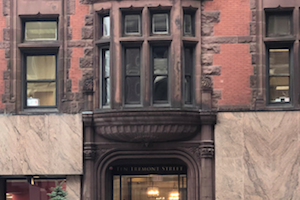For a Free Consultation
Buying or Receiving Stolen Goods
Under Massachusetts General Laws Chapter 266 Section 60, it is a crime to receive, aid in the concealment of, or buy stolen goods. To convict a defendant of this crime, the prosecutor has to prove beyond a reasonable doubt that:
- The goods were stolen. The prosecutor is not required to establish the identity of the person who stole the goods.
- The defendant knew that the goods were stolen. This is a subjective test. Therefore, even if a reasonable person would have reason to think that the goods were stolen, that is inadequate. The subjective test for knowledge will usually be satisfied through circumstantial evidence such as an excessively low purchase price. For instance, if the defendant bought a luxury diamond necklace from a street merchant for $10, that would be circumstantial evidence that she actually knew that it was stolen. The burden of explanation is on the defendant where the property was stolen recently. If there is no reasonable explanation, then knowledge is inferred. The Appeals Court has held that this inference of knowledge does not violate constitutional rights.
- The defendant bought, received, or aided in the concealment of the stolen goods. If the defendant received the property without knowing that it was stolen but later finds out that it was stolen and does not try to give it back to the true owner, this amounts to aiding in the concealment of the stolen goods.
If the value of the goods is $250 or less, the maximum sentence for a first offense is 2 ½ years in a jail or house of correction or a fine of up to $250. For a second or subsequent offense and where the value of the property is more than $250, the maximum sentence is up to 5 years in state prison.
Defending Receiving Stolen Property Cases in MassachusettsOne of the things we try to do in defending these cases is show the judge or the jury that there is absolutely no way that our client knew that the goods were stolen. Oftentimes the possession of the object was permissive. In other words, someone let our client have the item. Other times we show that our client made a good faith purchase of the item, unaware of its status. Still other times we are able to show that the object was not in fact stolen at all. Persuading the factfinder that the prosecution has not met its burden of proof beyond a reasonable doubt is what we do best. There is no case that is too difficult for us to defend. When you hire us you hire experience.
Experienced Boston Criminal Defense Attorney: 617-263-6800With more than 20 years of experience in criminal law, Attorney Stephen Neyman is a top Massachusetts defense lawyer. Attorney Neyman offers his clients a quality of service that cannot be beat. His thorough expertise, together with his intelligence, tireless diligence and enthusiasm for his work, makes him a force for his clients. If you have been charged with buying or receiving stolen property or any other crime in Massachusetts, call the Law Offices of Stephen Neyman, P.C. at 617-263-6800 or contact us online.
 Law Offices of Stephen Neyman Criminal Lawyers Home
Law Offices of Stephen Neyman Criminal Lawyers Home










